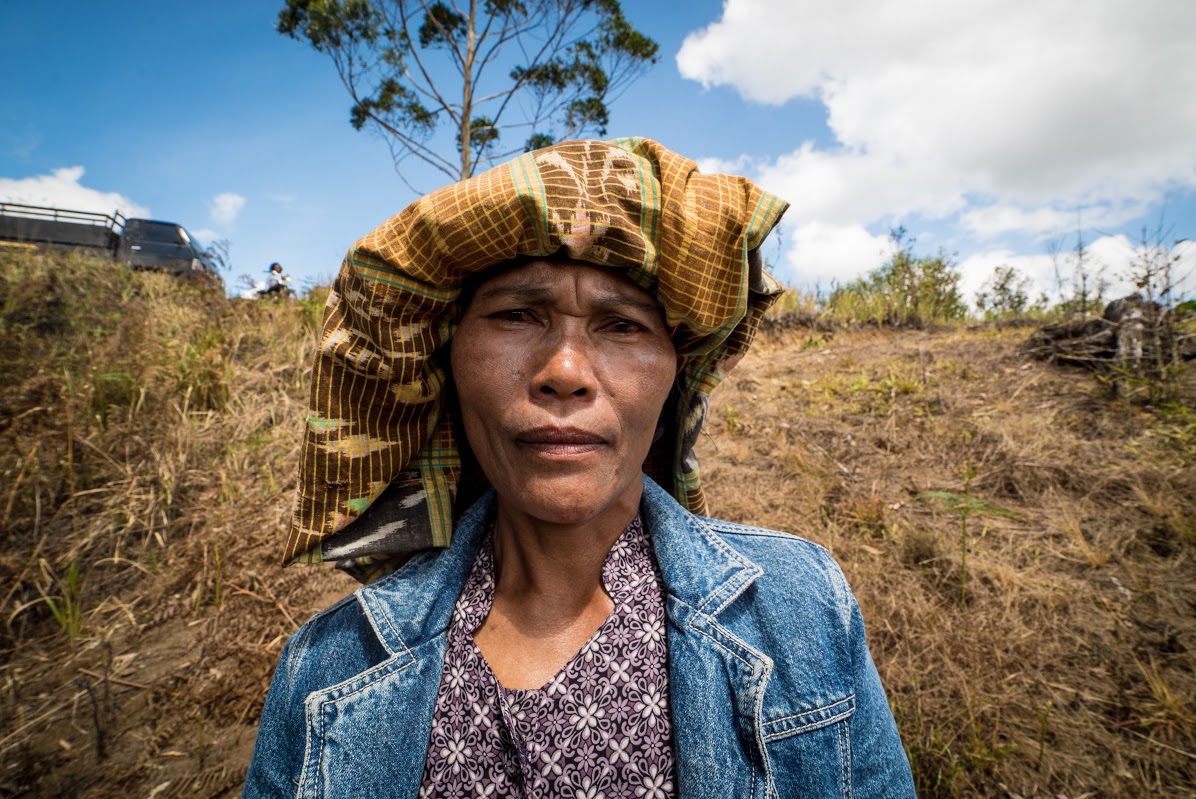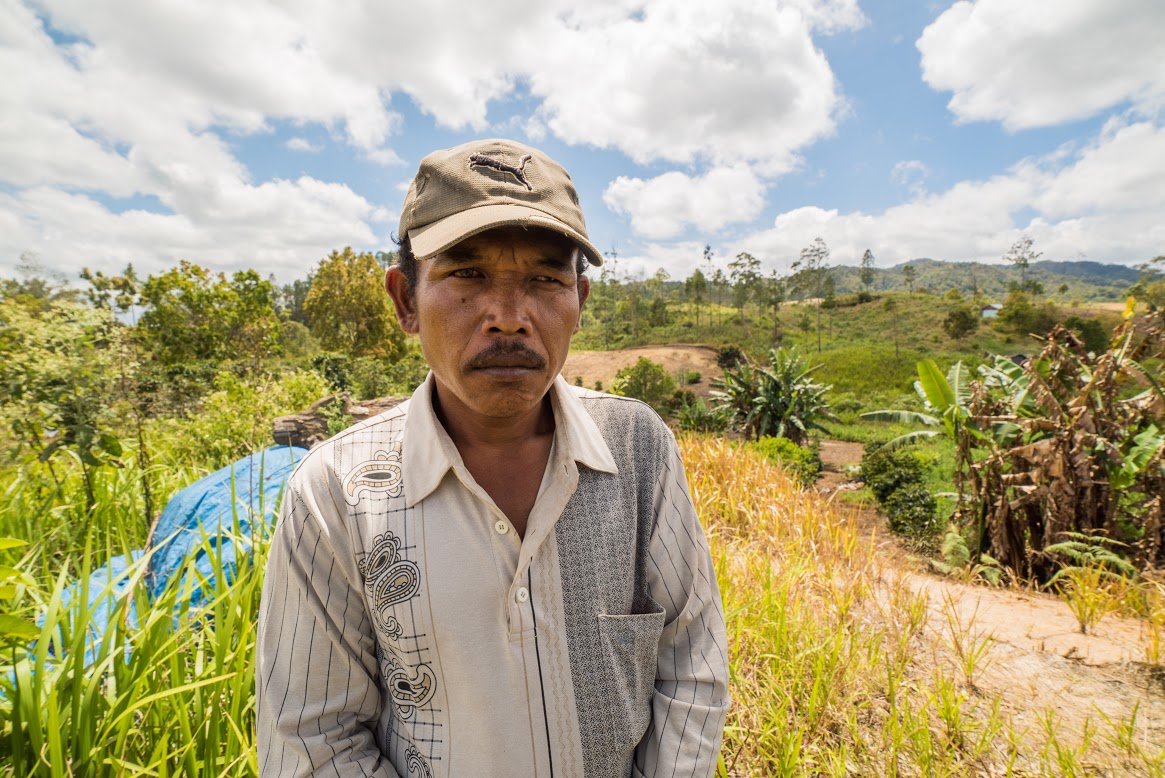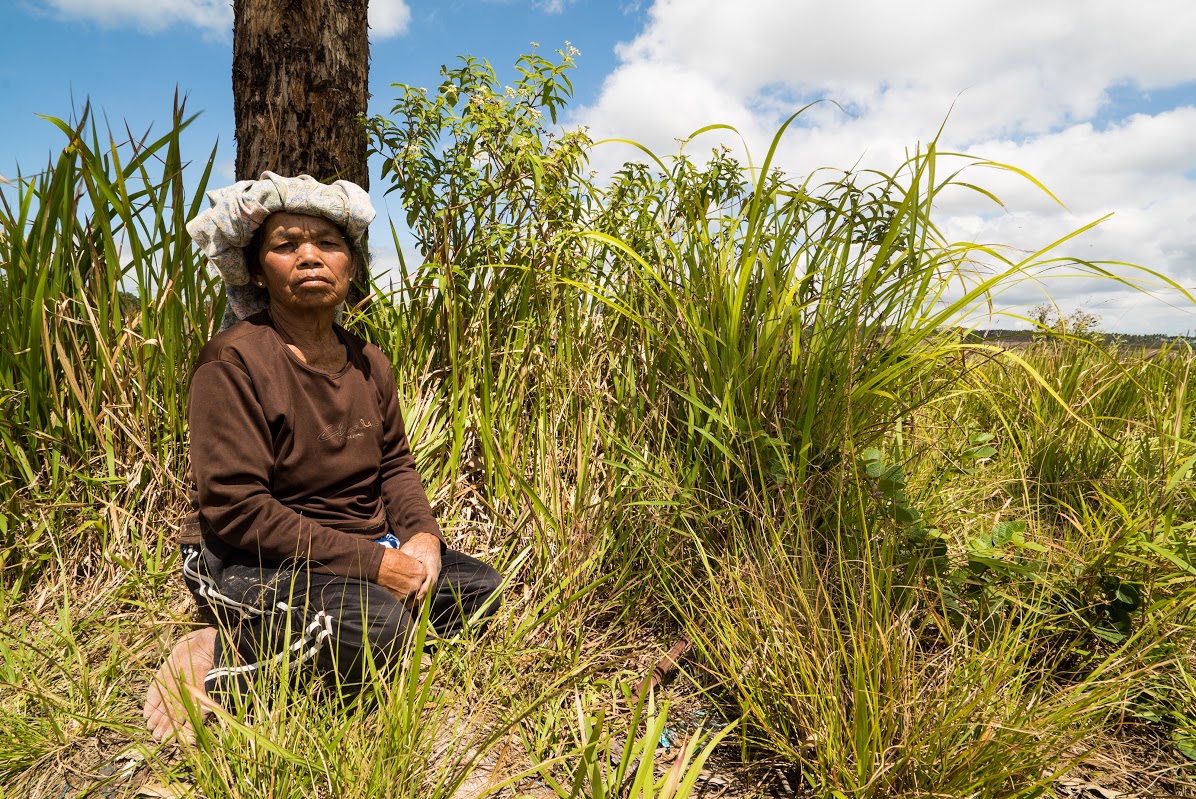For communities on the frontlines of pulp and paper plantation expansion, farming their traditionally-owned land can mean intimidation and arrest.
In the Lake Toba region of North Sumatra, the Indigenous Batak people never needed formal paperwork to acknowledge their land rights. However, when Toba Pulp Lestari (TPL)— Indonesia’s largest producer of wood pulp for rayon and viscose fabrics—started its plantations, this lack of formal land rights meant that TPL could legally convert tens of thousands of hectares of Batak land into industrial pulp plantations, destroying community farms and forests.
 “When we cultivate our traditionally-owned land, Toba Pulp Lestari (TPL) terrorizes us. When we are farming, TPL comes and plants eucalyptus trees. We beg TPL to no longer plant on our land.” -Kristina br Hutabarat, Aek Lung, North Sumatra, Indonesia. Learn more
“When we cultivate our traditionally-owned land, Toba Pulp Lestari (TPL) terrorizes us. When we are farming, TPL comes and plants eucalyptus trees. We beg TPL to no longer plant on our land.” -Kristina br Hutabarat, Aek Lung, North Sumatra, Indonesia. Learn more
While communities sought to protect their land and livelihoods, Toba Pulp Lestari pushed back using intimidation tactics and seeking the arrest of local activists. Because TPL holds the “legal” rights to the land, it has the power to call in the police to arrest people who it thinks are causing problems. The constant presence of company security personnel and gates on roads—punctuated by occasional visits from military police, arrests, and even physical violence—creates an atmosphere where communities live in fear that using their land will result in unwelcome encounters with security guards or police.
 “One day Toba Pulp Lestari’s (TPL) management came as we were working on our farm and yelled at us, saying that we could not farm here and that the land is not ours…TPL threatened us and said, if you still farm here I will report you to the police and put you in jail.” -Suddung Simamora, Aek Lung, North Sumatra, Indonesia. Learn more
“One day Toba Pulp Lestari’s (TPL) management came as we were working on our farm and yelled at us, saying that we could not farm here and that the land is not ours…TPL threatened us and said, if you still farm here I will report you to the police and put you in jail.” -Suddung Simamora, Aek Lung, North Sumatra, Indonesia. Learn more
Over 20 communities, with well over 3,000 families, representing more than 25,000 hectares of traditionally-owned forest lands, have active conflicts with the company. Many of these communities are taking action to protect or reclaim their lands. In 2013, the community of Pandumaan-Sipituhuta took non-violent direct action when they found TPL employees clearing some of their traditionally-owned lands. When roughly 250 residents came out to protest, TPL called in the military police, which arrived in the middle of the night and—threatening the community with rifles—searched through the houses of sleeping families. Local people, including elders, were assaulted. The police arrested 31 people; 16 were held in jail for two weeks. Hundreds of people joined in protest outside of the local police station until the farmers were released. This type of intimidation and violence is just one example of what Indigenous Batak communities face when they defend their rights to their traditionally-owned lands.
 “For a long time, this land has belonged to our ancestors. We came here to farm, but Toba Pulp Lestari (TPL) intimidates us.” -Delima br Tobing, Aek Lung, North Sumatra, Indonesia. Learn more
“For a long time, this land has belonged to our ancestors. We came here to farm, but Toba Pulp Lestari (TPL) intimidates us.” -Delima br Tobing, Aek Lung, North Sumatra, Indonesia. Learn more
In 2015, after decades of frontline community resistance and international campaigns TPL adopted a strong policy committing to respect the rights of communities, including the right to protest freely. However, frontline communities continue to report intimidation and criminalization and that TPL has not fully fulfilled its promises. You can read more about their stories at www.beyondpaperpromises.org. Join us in demanding that Toba Pulp Lestari keep its promises and respect the rights of the Batak people.
